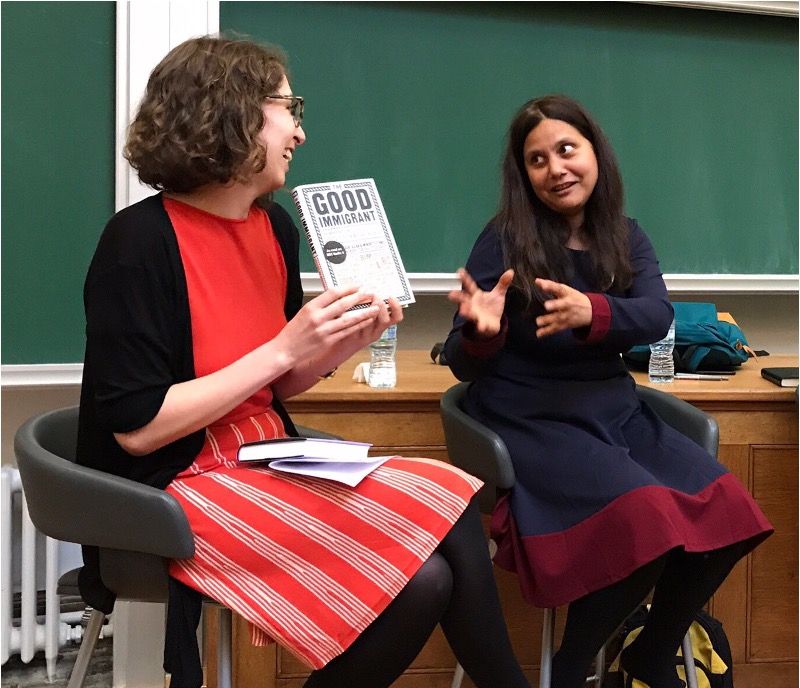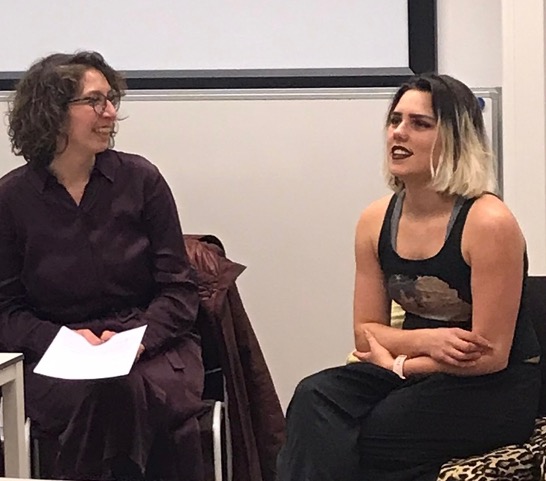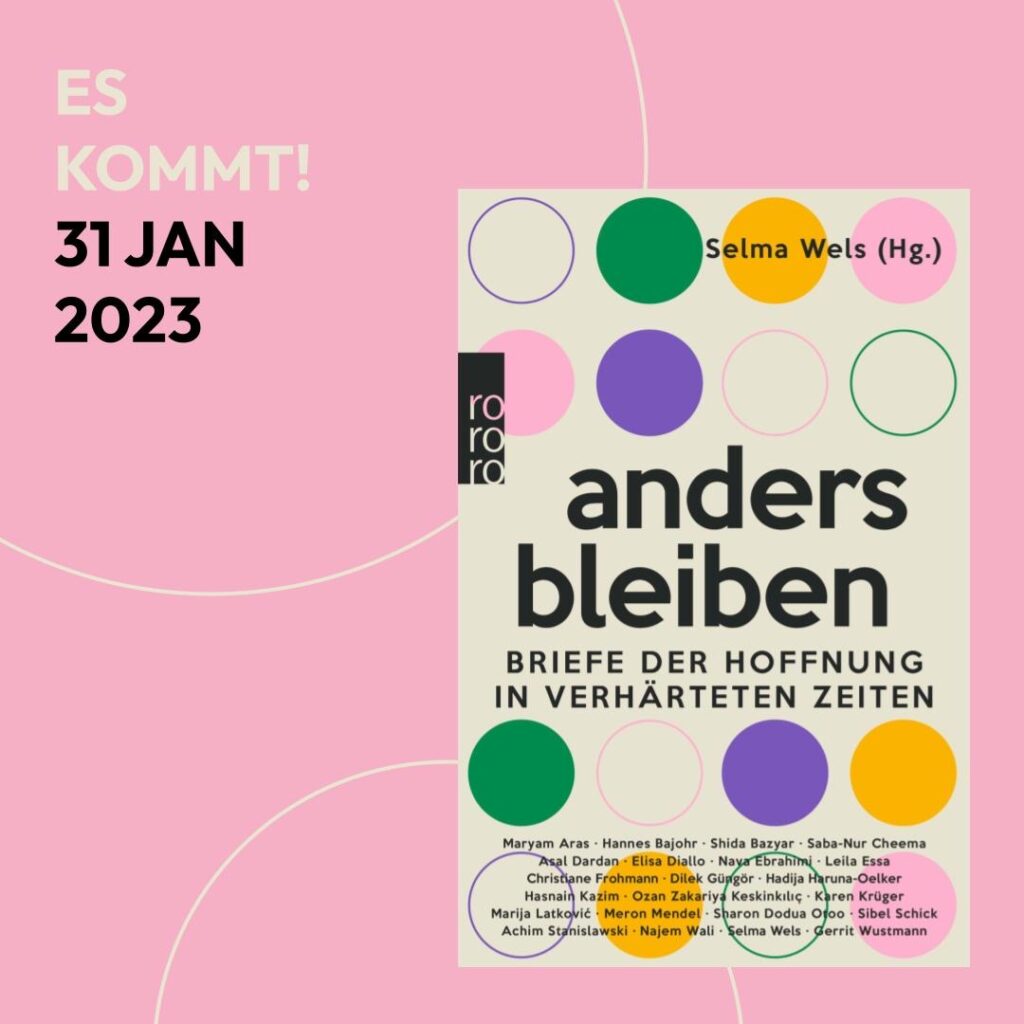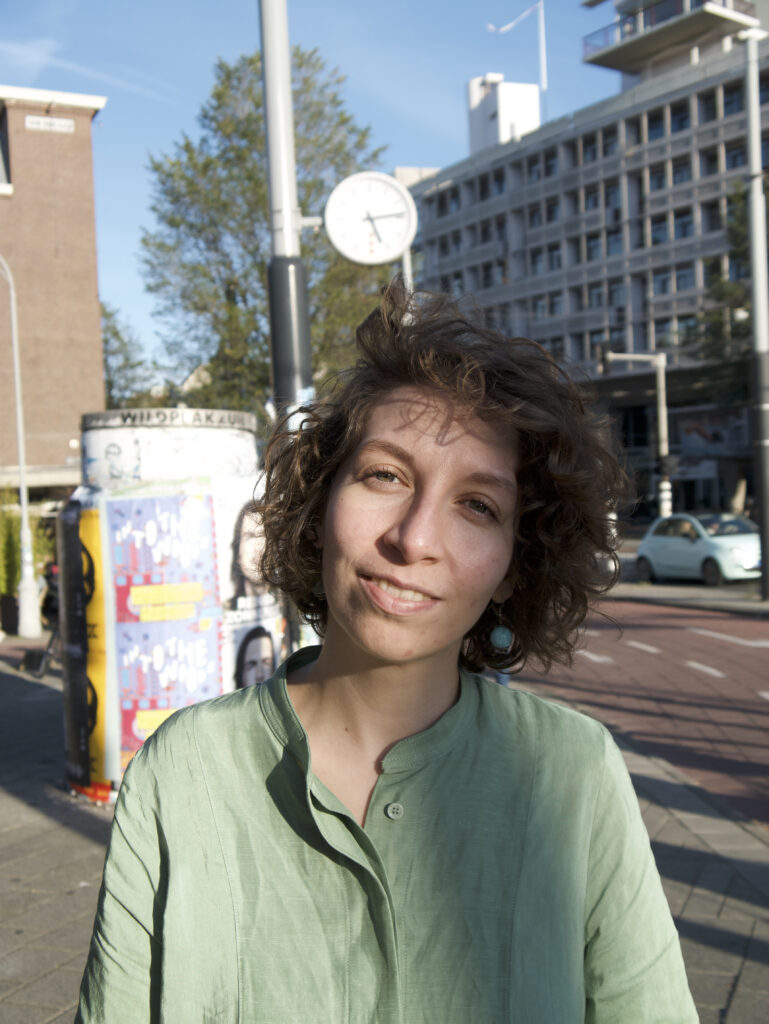Blog
Interviewing into the new year
Three days into 2023 I got to conduct my first in-depth author interview. Mithu Sanyal and I discussed anticipated audiences, kinship among writers and among texts, degrees of marginalisation in and beyond the literary scene, and to what extent the concept of “postmigration” can still be a fruitful one. This research conversation will appear in Re-writing Identities in Contemporary German Literature – a volume edited by Selma Rezgui, Laura Sturtz and Tara Talwar Windsor and out with Camden House later this year!

Photo: Sandra van Lente

Photo: Ruth Clemens
Anyone who already wants to think through the pitfalls of a watered-down notion of postmigration in the German-language context and its nevertheless remaining radical potential should run-not-walk to read Postmigration Reloaded, a conversation between Jeannette Oholi, Maryam Aras, Kyung-Ho Cha and Maha El Hissy. At one point, El Hissy links the predominance of the term in German discourse to the simultaneous neglect and even rejection of postcolonial theory and intersectional criticism in the cultural scene there. “Postmigrant approaches as the tamer, German answer to postcolonial ones” (“das Postmigrantische als die bravere, deutsche Antwort auf das Postkoloniale”), Aras sums up El Hissy’s line of argument in response – one that is too compelling not to bring up here or, in fact, in the interview with Sanyal.
Another January highlight was a visit from the UK by Yara Rodrigues Fowler, whose writing I already mentioned in last month’s blog post and analysed at Das kritikable Queertett in Hamburg (video now online!). Rodrigues Fowler joined the MA course on Publishing where she talked about authorial agency in the publishing industry, her intention to make the possibility of a different world imaginable through her fiction, and her move away from calling for representation within the British context to centring internationalist concerns.
It was excellent to also welcome guest speakers from the Dutch publishing scene to the course. Ebissé Rouw, co-founder and -host of the Dipsaus podcast, publisher and editor, shared her insights into the state of diversity discussions in the Netherlands compared to the German and other fields. While my research project focuses on the German and British ones, I’m greatly looking forward to also think about cross-border links and influences and am currently getting my Dutch ready to read De Goede Immigrant, one of the anthologies co-edited by Rouw. During our in-class interview with Isabel Harlaar, editor at Das Mag, we were able to explore the the particular possibilities offered by indie publishing together and thanks to an invite by the Goethe Institute Amsterdam and the Dutch Literature Foundation, I was additionally introduced to upcoming initiatives by by Dutch and German publishers to make new texts available in translation.

In very exciting new-text news: on the last day of January anders bleiben will appear with Rowohlt! I will write more about this publication and its relationship to my research in the next post, but for now I’d like to warmly invite those of you who read from Berlin to join the book launch at Heimathafen Neukölln, where Selma Wels, Asal Dardan, Ozan Zakariya Keskinkılıç and me will talk about our contributions with Fatma Aydemir!


